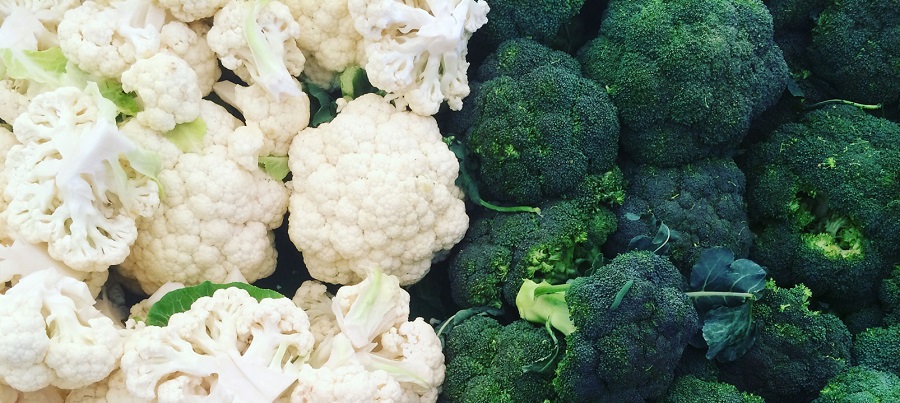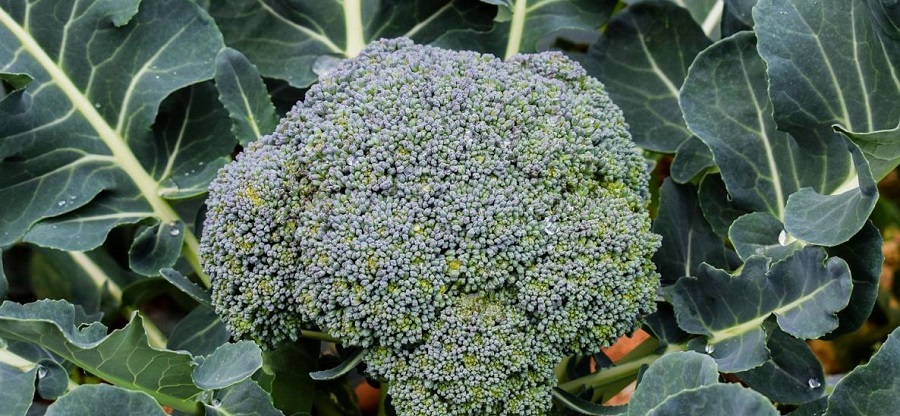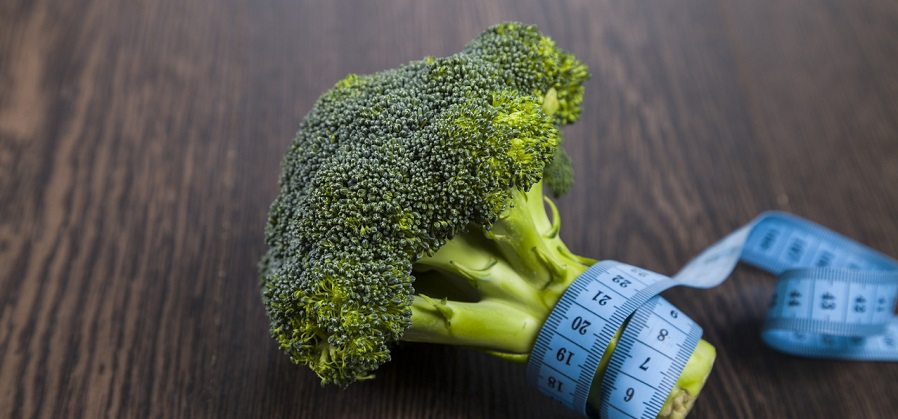What are the main differences between broccoli and cauliflower in terms of nutritional content?
Broccoli and cauliflower are both cruciferous vegetables and are similar in many ways, but there are some differences in their nutritional content. Here are a few of the main differences:
Vitamin C: Broccoli is higher in vitamin C than cauliflower, with about 89 mg per 100 grams compared to 48 mg per 100 grams in cauliflower.
Vitamin K: Broccoli is also higher in vitamin K than cauliflower, with about 101 mcg per 100 grams compared to 15 mcg per 100 grams in cauliflower.
Fiber: Cauliflower is slightly higher in fiber than broccoli, with about 2.3 grams of fiber per 100 grams compared to 2.1 grams per 100 grams in broccoli.
Carbohydrates: Broccoli is slightly higher in carbohydrates than cauliflower, with about 6 grams of carbs per 100 grams compared to 5 grams per 100 grams in cauliflower.
Protein: Broccoli is slightly higher in protein than cauliflower, with about 2.8 grams of protein per 100 grams compared to 2 grams per 100 grams in cauliflower.
Sulforaphane: Broccoli is a particularly good source of the antioxidant sulforaphane, which is believed to have cancer-fighting properties. Cauliflower also contains sulforaphane, but in lower amounts.
Overall, both broccoli and cauliflower are highly nutritious vegetables that can provide a wide range of health benefits. However, broccoli may be slightly higher in certain key nutrients like vitamin C and vitamin K.
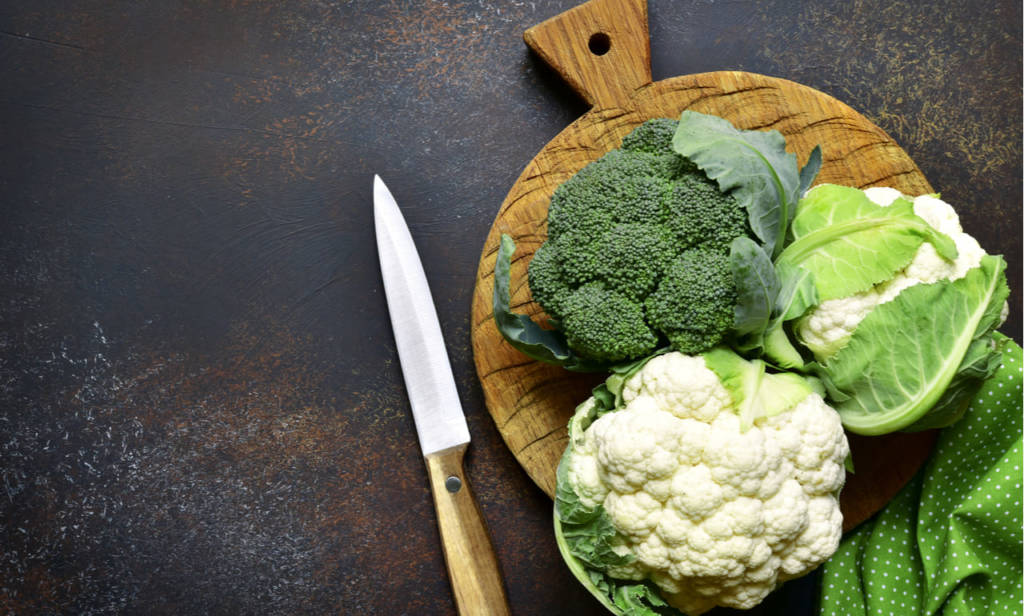
Are there any health benefits that one vegetable provides that the other doesn't?
Yes, there are some health benefits that one vegetable provides that the other doesn't. Here are a few examples:
Broccoli is a good source of the antioxidants lutein and zeaxanthin, which are important for eye health. While cauliflower does contain some lutein and zeaxanthin, it is not as concentrated as in broccoli.
Cauliflower contains glucosinolates, which are compounds that can help support liver function and may have anti-inflammatory properties. While broccoli also contains glucosinolates, cauliflower has been found to have a wider variety of these compounds.
Broccoli contains more vitamin C than cauliflower, which is important for immune function, skin health, and wound healing.
Cauliflower is lower in calories than broccoli, which can make it a good choice for those who are watching their calorie intake.
Overall, both broccoli and cauliflower are healthy vegetables that offer a wide range of nutrients and health benefits. Depending on your specific health needs and preferences, one may be a better choice than the other.
How do broccoli and cauliflower compare in terms of their fiber content?
Broccoli and cauliflower are both good sources of dietary fiber, which is important for maintaining digestive health and regulating blood sugar levels. In terms of their fiber content, cauliflower has a slightly higher fiber content than broccoli.
Here's a comparison of the fiber content in 1 cup (91 grams) of cooked broccoli and cauliflower:
Cooked broccoli contains approximately 2.4 grams of fiber per cup.
Cooked cauliflower contains approximately 2.9 grams of fiber per cup.
While the difference in fiber content between the two vegetables is relatively small, it's worth noting that both broccoli and cauliflower are low in calories and high in nutrients. Eating a variety of vegetables, including broccoli and cauliflower, can help you meet your daily fiber needs and support overall health.
Is one vegetable better than the other for promoting digestive health?
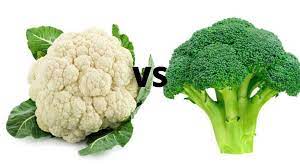
Both broccoli and cauliflower are great for promoting digestive health because they are high in fiber and contain prebiotic compounds that help support the growth of beneficial gut bacteria. Additionally, both vegetables are low in calories and fat, making them easy to digest and beneficial for weight management.
However, there is some evidence to suggest that broccoli may be particularly effective for promoting digestive health. This is because broccoli contains a unique compound called sulforaphane, which has been shown to have anti-inflammatory and anti-cancer properties. Studies have also suggested that sulforaphane may help support the growth of beneficial gut bacteria and reduce the growth of harmful bacteria in the digestive tract.
That being said, cauliflower is also a great choice for digestive health and is particularly high in the prebiotic fiber inulin, which has been shown to improve gut function and reduce inflammation. Ultimately, both broccoli and cauliflower are important components of a healthy diet and can provide a wide range of digestive health benefits.
Do broccoli and cauliflower contain different types of antioxidants?
Broccoli and cauliflower are both cruciferous vegetables and contain a variety of different antioxidants that are important for overall health. While the two vegetables contain many of the same antioxidants, they do differ somewhat in their specific antioxidant content.
One of the key antioxidants found in broccoli is sulforaphane, which is formed when the vegetable is chewed or chopped. Sulforaphane is known to have potent anti-inflammatory and anti-cancer properties, and has been linked to a reduced risk of several types of cancer.
Cauliflower also contains sulforaphane, but in smaller amounts than broccoli. Instead, cauliflower is particularly high in another antioxidant called glucosinolate, which is also found in other cruciferous vegetables like broccoli, cabbage, and kale. Glucosinolates have been shown to have anti-cancer properties and can help support liver function and detoxification.
Both broccoli and cauliflower are also good sources of other antioxidants like vitamin C, beta-carotene, and quercetin, which can help protect against oxidative stress and support overall health. Eating a variety of colorful fruits and vegetables, including broccoli and cauliflower, is a great way to ensure that you're getting a wide range of beneficial antioxidants in your diet.
Which vegetable is a better source of vitamin C - broccoli or cauliflower?
Broccoli is a better source of vitamin C than cauliflower.
Here's a comparison of the vitamin C content in 1 cup (91 grams) of cooked broccoli and cauliflower:
Cooked broccoli contains approximately 81.2 mg of vitamin C per cup.
Cooked cauliflower contains approximately 28.5 mg of vitamin C per cup.
This means that broccoli contains almost three times as much vitamin C as cauliflower. Vitamin C is an important antioxidant that helps support immune function, wound healing, and skin health, among other benefits.
While both broccoli and cauliflower are healthy vegetables that offer a wide range of nutrients, if you are looking to increase your vitamin C intake, broccoli may be a better choice than cauliflower.
Are there any differences in the way that broccoli and cauliflower are metabolized by the body?
Broccoli and cauliflower are both metabolized similarly by the body, as they are both low in calories and high in fiber and other nutrients. However, there may be some differences in the way that certain compounds in the two vegetables are metabolized.
One example is the compound sulforaphane, which is found in high concentrations in broccoli. Sulforaphane is formed when the enzyme myrosinase interacts with glucoraphanin, a precursor compound found in broccoli. Studies have shown that cooking broccoli can reduce the activity of myrosinase, which can reduce the amount of sulforaphane that is formed in the body.
Cauliflower also contains glucoraphanin, but it does not contain as much myrosinase as broccoli. As a result, the amount of sulforaphane that is formed from cauliflower may be lower than that from broccoli.
However, there are ways to increase the bioavailability of sulforaphane from both broccoli and cauliflower. For example, eating the vegetables raw or lightly steamed, and pairing them with a source of myrosinase, such as mustard seeds, can help increase the formation of sulforaphane in the body.
Overall, while there may be some differences in the way that specific compounds in broccoli and cauliflower are metabolized, both vegetables are metabolized similarly by the body and are great sources of nutrients that support overall health.
Which vegetable is more effective at reducing inflammation - broccoli or cauliflower?
Both broccoli and cauliflower have been shown to have anti-inflammatory properties and can be effective at reducing inflammation in the body. However, there is some evidence to suggest that broccoli may be particularly effective in this regard.
This is because broccoli contains a compound called sulforaphane, which has been shown to have potent anti-inflammatory effects. Sulforaphane can help reduce the production of pro-inflammatory molecules in the body, such as interleukin-6 (IL-6) and C-reactive protein (CRP).
In addition to sulforaphane, broccoli also contains other anti-inflammatory compounds like kaempferol and quercetin, which have been shown to help reduce inflammation and oxidative stress in the body.
While cauliflower also contains some of these same anti-inflammatory compounds, it may not be as effective as broccoli at reducing inflammation due to its lower levels of sulforaphane.
Overall, both broccoli and cauliflower are healthy vegetables that can help reduce inflammation in the body. However, if you are specifically looking for a vegetable that may be particularly effective at reducing inflammation, broccoli may be the better choice due to its higher levels of sulforaphane and other anti-inflammatory compounds.
Are there any differences in the way that broccoli and cauliflower impact blood sugar levels?
Both broccoli and cauliflower are low in carbohydrates and have a low glycemic index, which means that they do not cause a rapid increase in blood sugar levels after consumption. As a result, they are generally considered to be good choices for people with diabetes or those looking to manage their blood sugar levels.
However, there may be some differences in the way that specific compounds in broccoli and cauliflower impact blood sugar levels. For example, some studies have suggested that sulforaphane, a compound found in high concentrations in broccoli, may have blood sugar-lowering effects by improving insulin sensitivity and reducing inflammation.
Cauliflower, on the other hand, contains a significant amount of dietary fiber, which can help slow the absorption of carbohydrates and prevent blood sugar spikes. In addition, cauliflower also contains compounds like indole-3-carbinol and sulforaphane, which have been shown to have anti-inflammatory and antioxidant effects that can help improve overall metabolic health.
Overall, both broccoli and cauliflower are great choices for people looking to manage their blood sugar levels, as they are low in carbohydrates and have a low glycemic index. While there may be some differences in the way that specific compounds in the two vegetables impact blood sugar levels, both are healthy choices that can help support overall metabolic health.
